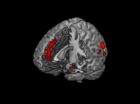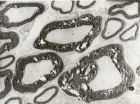(Press-News.org) CORVALLIS, Ore. – Religion and spirituality have distinct but complementary influences on health, new research from Oregon State University indicates.
"Religion helps regulate behavior and health habits, while spirituality regulates your emotions, how you feel," said Carolyn Aldwin, a gerontology professor in the College of Public Health and Human Sciences at OSU.
Aldwin and colleagues have been working to understand and distinguish the beneficial connections between health, religion and spirituality. The result is a new theoretical model that defines two distinct pathways.
Religiousness, including formal religious affiliation and service attendance, is associated with better health habits, such as lower smoking rates and reduced alcohol consumption. Spirituality, including meditation and private prayer, helps regulate emotions, which aids physiological effects such as blood pressure.
The findings were published recently in the journal Psychology of Religion and Spirituality. Co-authors were Crystal L. Park of the University of Connecticut, and Yu-Jin Jeong and Ritwik Nath of OSU. The research was supported by a grant from the John Templeton Foundation.
"No one has ever reviewed all of the different models of how religion affects health," said Aldwin, the Jo Anne Leonard endowed director of OSU's Center for Healthy Aging Research. "We're trying to impose a structure on a very messy field."
There can be some overlap of the influences of religion and spirituality on health, Aldwin said. More research is needed to test the theory and examine contrasts between the two pathways. The goal is to help researchers develop better measures for analyzing the connections between religion, spirituality and health and then explore possible clinical interventions, she said.
INFORMATION: END
Religion, spirituality influence health in different but complementary ways
2014-03-28
ELSE PRESS RELEASES FROM THIS DATE:
Brain scans link concern for justice with reason, not emotion
2014-03-28
People who care about justice are swayed more by reason than emotion, according to new brain scan research from the University of Chicago Department of Psychology and Center for Cognitive and Social Neuroscience.
Psychologists have found that some individuals react more strongly than others to situations that invoke a sense of justice—for example, seeing a person being treated unfairly or mercifully. The new study used brain scans to analyze the thought processes of people with high "justice sensitivity."
"We were interested to examine how individual differences about ...
Researchers identify good bacteria that protects against HIV
2014-03-28
Researchers at the University of Texas Medical Branch at Galveston by growing vaginal skin cells outside the body and studying the way they interact with "good and bad" bacteria, think they may be able to better identify the good bacteria that protect women from HIV infection and other sexually transmitted infections.
The health of the human vagina depends on a symbiotic/mutually beneficial relationship with "good" bacteria that live on its surface feeding on products produced by vaginal skin cells. These good bacteria, in turn, create a physical and chemical barrier ...
Underweight people at as high risk of dying as obese people, new study finds
2014-03-28
TORONTO, March 28, 2014—Being underweight puts people at highest risk of dying, just as obesity does, new research has found.
The connection between being underweight and the higher risk of dying is true for both adults and fetuses. This is so even when factors such as smoking, alcohol use or lung disease are considered, or adults with a chronic or terminal illness are excluded, the study found.
The study, led by Dr. Joel Ray, a physician-researcher at St. Michael's Hospital and the hospital's Li Ka Shing Knowledge Institute, was published today in the Journal of Epidemiology ...
Married people less likely to have cardiovascular problems
2014-03-28
Analysis of surveys of more than 3.5 million American men and women, administered at some 20,000 health centers across the country — believed to be the largest analysis of its kind ever performed — found that married people, regardless of age, sex, or even cardiovascular risk factors, had significantly less chances of having any kind of cardiovascular disease than those who were single, divorced or widowed.
Among the study's key findings, to be presented March 29 in Washington, DC, at the annual scientific sessions of the American College of Cardiology:
Being married ...
Optimal duration of percutaneous microballoon compression for trigeminal nerve injury
2014-03-28
Percutaneous microballoon compression of the trigeminal ganglion is a brand new operative technique for the treatment of trigeminal neuralgia. However, it is unclear how the procedure mediates pain relief, and there are no standardized criteria, such as compression pressure, compression time or balloon shape, for the procedure. In particular, the links between compression duration and postoperative complications and pain recurrence are still under debate. An extended duration of compression would cause irreversible injury and drastic demyelination, and paresthesia and numbness ...
Concerning number of kids have elevated cholesterol
2014-03-28
WASHINGTON (March 28, 2014) — Roughly one out of three kids screened for high cholesterol between the ages of 9 and 11 has borderline or high cholesterol, potentially placing them at greater risk for future cardiovascular disease, according to research to be presented at the American College of Cardiology's 63rd Annual Scientific Session.
In one of the largest studies of outpatient pediatric clinic visits to date, researchers examined the medical records of 12,712 children who had screening for cholesterol levels as part of a routine physical exam within the Texas Children's ...
Number of babies mom has may play role in future cardiovascular health
2014-03-28
WASHINGTON (March 28, 2014) — Women who give birth to four or more children are much more likely to have evidence of plaque in their heart or thickening of their arteries – early signs of cardiovascular disease – compared with those having fewer pregnancies, according to research to be presented at the American College of Cardiology's 63rd Annual Scientific Session.
While earlier studies have shown an association between several aspects of pregnancy – physiological changes, complications, number of pregnancies – and future heart disease risk, many questions remain about ...
Eating fruits and vegetables linked to healthier arteries later in life
2014-03-28
WASHINGTON (March 28, 2014) — Women who ate a diet high in fresh fruits and vegetables as young adults were much less likely to have plaque build-up in their arteries 20 years later compared with those who consumed lower amounts of these foods, according to research to be presented at the American College of Cardiology's 63rd Annual Scientific Session. This new finding reinforces the importance of developing healthy eating habits early in life.
Previous studies have found that middle-aged adults whose diet consists of a high proportion of fruits and vegetables are less ...
TV linked to poor snacking habits, cardiovascular risk in middle schoolers
2014-03-28
WASHINGTON (March 28, 2014) — Middle school kids who park themselves in front of the TV for two hours or more each day are more likely to consume junk food and have risk factors for cardiovascular disease, even compared to those who spend an equal amount of time on the computer or playing video games, according to research to be presented at the American College of Cardiology's 63rd Annual Scientific Session.
"While too much of both types of screen time encourages sedentary behavior, our study suggests high TV time in particular is associated with poorer food choices ...
Marriage linked to lower heart risks in study of 3.5+ million adults
2014-03-28
WASHINGTON (March 28, 2014) — People who are married have lower rates of several cardiovascular diseases compared with those who are single, divorced or widowed, according to research to be presented at the American College of Cardiology's 63rd Annual Scientific Session. The relationship between marriage and lower odds of vascular diseases is especially pronounced before age 50.
"These findings certainly shouldn't drive people to get married, but it's important to know that decisions regarding who one is with, why, and why not may have important implications for vascular ...


